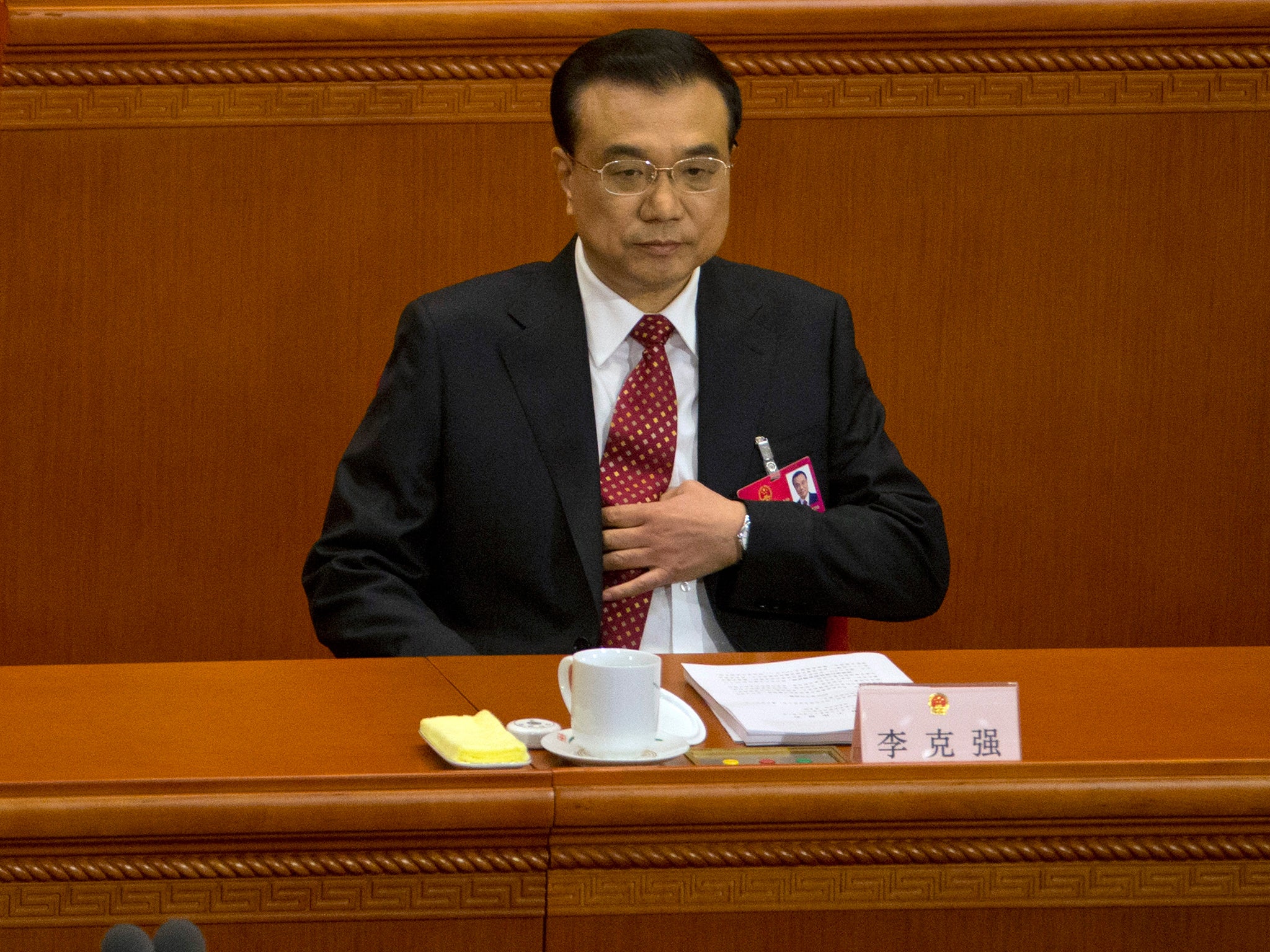China faces 'tough battle' to keep economy growing by at least 6.5 per cent, Premier Li Keqiang says
Slowing growth and a big rise in labour unrest bring a change of direction, with promises of further industrial reforms

Your support helps us to tell the story
From reproductive rights to climate change to Big Tech, The Independent is on the ground when the story is developing. Whether it's investigating the financials of Elon Musk's pro-Trump PAC or producing our latest documentary, 'The A Word', which shines a light on the American women fighting for reproductive rights, we know how important it is to parse out the facts from the messaging.
At such a critical moment in US history, we need reporters on the ground. Your donation allows us to keep sending journalists to speak to both sides of the story.
The Independent is trusted by Americans across the entire political spectrum. And unlike many other quality news outlets, we choose not to lock Americans out of our reporting and analysis with paywalls. We believe quality journalism should be available to everyone, paid for by those who can afford it.
Your support makes all the difference.China faces a “tough battle” to keep its economy growing by at least 6.5 per cent annually over the next five years while creating more jobs, Premier Li Keqiang has said.
Opening China’s annual National People’s Congress, Mr Li tried to quell anxiety about the slowing economy after financial turmoil and rising labour unrest. In announcing the cut in the growth target – from last year’s “around 7 per cent”, he promised to open the oil and telecoms industries to private competitors in sweeping industrial reforms.
“Our country’s development faces more and greater difficulties … so we must be prepared for a tough battle,” said Mr Li, an economist by training. Growth last year declined to a 25-year low of 6.9 per cent.
In a wide-ranging speech lasting nearly two hours, Mr Li said Beijing would “oppose separatist activities” in Taiwan, the self-ruled island that China still considers to be a renegade province.
The annual meeting of the National People’s Congress, a 12-day event, sets out both the economic and political agenda for the country. In an address to nearly 3,000 delegates, Mr Li said efforts would be increased to clean up China’s badly polluted air, water and soil, and more would be spent on science and industrial research as well as development to create technology and better-paying jobs.
Chinese leaders are struggling to reassure the public and global financial markets about their ability to steer the world’s second-largest economy after a plunge in stock prices and currency turmoil, as well as spreading protests by laid-off workers. The downturn and Beijing’s reforms have wiped out jobs in mining, steel-making and other industries, with the China Labour Bulletin, a research group in Hong Kong, reported 2,606 labour disputes last year, nearly double the 1,379 reported in 2014.
Communist Party leaders have tried to shift public attention away from the growth target. They say their priority is jobs, and so long as the economy generates enough jobs, they will accept slower growth. The government says the economy created 13 million new jobs last year, but has not said how many were lost.
A separate budget report, released on 5 March, confirmed that military spending will rise by a relatively low 7.6 per cent, at a time of tensions with China’s neighbours over disputed islands and territorial rights in the South China Sea.
President Xi Jinping is seeking to modernise the People’s Liberation Army, the world’s largest standing armed force, cutting 300,000 jobs and revamping its Cold War-era command structure, but the 954bn yuan (£103bn) budget, after double-digit rises in 2014 and 2015, keeps China in second place in global defence spending behind the United States. (AP)
Join our commenting forum
Join thought-provoking conversations, follow other Independent readers and see their replies
Comments